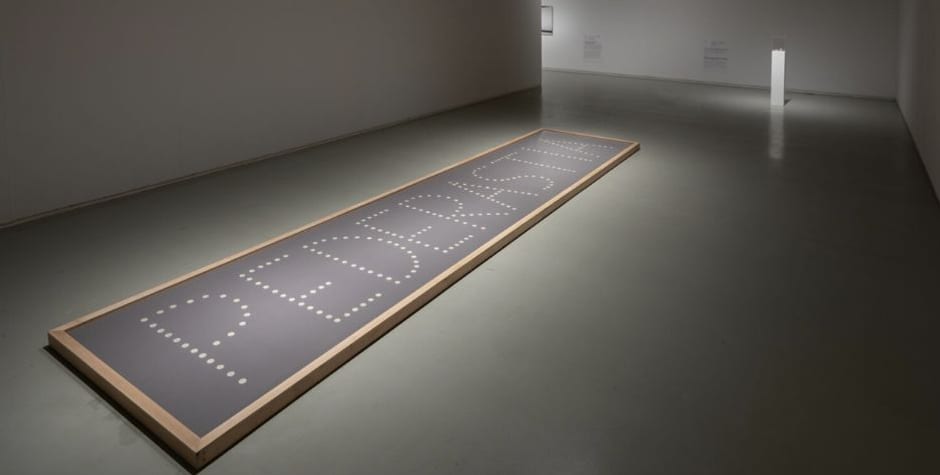

“Hosts Case”: The European Court of Human Rights will not deliver justice to Christians
“Hosts Case”: The ECHR will not deliver justice to Christians
By a decision, the ECHR has refused to judge the “Hosts Case.” This case involved an artistic performance created using 242 consecrated hosts stolen during masses. The performer’s stated and acknowledged purpose was to offend Catholics. In this case, the Spanish state was sued before the ECHR by a Christian association, which accused it of supporting this sacrilege. The performance had been exhibited in Pamplona in 2015-2016 and had been subsidized by the municipality. Even today, photos of this performance are regularly displayed in museums throughout Spain.
The ECLJ engaged in the “Hosts Case” on behalf of the Spanish Episcopal Conference. Like the ECLJ, the seven other third-party interveners believed that the Spanish public authorities had violated the rights of Catholics, not only by allowing such a performance but also by supporting it through subsidies. The facts and issues of this “Hosts Case” are summarized here.
The decision of the ECHR, delivered at the end of 2023, sends a very bad signal : it seems that anything is allowed against Catholics in Europe. This decision, declaring the complaint inadmissible, deserves to be analyzed both legally and politically, and even spiritually. According to a former judge of the ECHR, interviewed by the ECLJ: “This decision is politically correct. The judges did not want to delve into the substance of the case. They found pretexts to avoid judging on this matter, which is sensitive on religious level.”
Legal analysis of the rejection on the first complaint
The applicant association raised two complaints before the ECHR. The first pertained to the principle of “neutrality and impartiality of the State,” which in European jurisprudence constitutes an obligation. This principle stems from the right to freedom of religion (article 9) and extends to all public authorities. It is incompatible with the hosting and financial support, by a municipality, of an exhibition that seriously offends people of a given religious community. There was therefore a good hope that the ECHR would condemn Spain for a violation of its duty of religious neutrality.
However, the judges dismissed this first complaint for failure to exhaust domestic remedies. They considered that the applicant association should have filed an administrative appeal against the Pamplona exhibition, rather than a criminal complaint. However, the choice of the criminal route was justified by the presence, in the Spanish Penal Code, of provisions perfectly applicable to the facts of the “Hosts Case.” Article 524 of the Penal Code sanctions acts that “offend the feelings of a legally protected religious confession in a temple or place of worship, or a religious ceremony” and Article 525-1 sanctions “whoever in order to offend the feelings of the members of a religious confession, publicly disparages their dogmas, beliefs, rites or ceremonies in public, verbally or in writing, or insult, also publicly, those who profess or practice these.”
Through such an exhibition created from hosts stolen during masses, the performer, as well as the municipality as an accomplice, were therefore exposed to criminal prosecution based on these two articles. As the former judge of the ECHR explains: “Contrary to what the Court says, the applicant association was entitled to bring the matter before the Spanish criminal courts. These courts admitted it, ruling on the substance of the “Hosts Case.” They did not criticize the association for not initiating an administrative appeal.”
By reproaching the association for not initiating an administrative appeal alongside the criminal complaint, the ECHR contradicted its own jurisprudence. Indeed, if an applicant has multiple effective remedies available, they are only obligated to use one of them[1]. Once a remedy has been utilized, the use of another remedy with the same purpose cannot be demanded[2]. It is up to the applicant to choose the most appropriate remedy in their case[3]. The ECHR has reiterated these principles several times, but it did not apply them in the “Hosts Case.”
The former judge of the ECHR we interviewed confirms this analysis: "In the Court's jurisprudence, an applicant who has used up one remedy is not obliged to use other parallel remedies essentially serving the same purpose. The applicant association had chosen to file a criminal complaint, and the Court demanded an administrative remedy instead. Let us imagine the opposite situation: if the association had filed an administrative appeal, would the Court have demanded the filing of a criminal complaint? That's absurd."
Legal analysis of the rejection on the second complaint
The Christian association’s complaint pertained to the arbitrary dismissal of its complaint. The association questioned the conclusion of the Spanish criminal courts that the performance did not constitute a criminal offense. The European judges dismissed this second complaint for lack of legal basis, meaning they considered that there was no apparent arbitrariness in the Spanish criminal judgments of the “Hosts Case.” This complaint was deemed inadmissible and therefore did not undergo substantive examination either.
However, there are numerous elements indicating arbitrary criminal judgments. What stands out is the disparity between the facts established by the criminal courts – desecration of 242 consecrated hosts stolen during Masses – and the non-application of Articles 524 and 525-1 of the Spanish Penal Code. How can one believe that such desecration does not offend the religious sentiments of Catholics? Or who can believe that the sacrilegious exhibition did not publicly disparage Catholic dogmas, beliefs, rites, and ceremonies? These conclusions of the Spanish criminal courts were, to say the least, surprising and unpredictable. They are even shocking, given that the Spanish performer openly admitted his intention to offend Catholics and denigrate their religion[4].
In other cases, Articles 524 and 525-1 of the Spanish Penal Code are consistently applied. For example, in 2020, a Spanish woman was fined 2,700 euros for imitating a Catholic procession with a plastic vagina dressed as if it were the Virgin Mary[5]. The criminal court held that this woman was denigrating not only a procession but also the Virgin herself and Catholic prayers (Credo, Ave Maria). Similarly, in 2018, the Spanish Supreme Court upheld the conviction of a man who shouted during a Mass while placing a banner on the altar. This man was sentenced to six months in prison[6].
In the "Hosts Case" why was the Spanish Penal Code ignored? It is possible that Spanish judges may have prioritized their personal beliefs over criminal law[7]. For instance, one of them, Fermin Otamendi, felt the need to emphasize that consecrated hosts are "small, round, white objects." According to him, the performer treated these hosts "with discretion, without his conduct being considered disrespectful, offensive, or irreverent." However, the Spanish Code did not require his opinion. To determine the applicability of Articles 524 and 525-1, what mattered was understanding the importance of consecrated hosts for Catholics, on the one hand, and the performer's conduct, on the other.
For all these reasons, the ECHR should have considered having sufficient grounds to examine the second complaint of the applicant association substantively, rather than declaring it inadmissible.
A decision with no possibility of appeal
Unlike a judgment, a decision of the ECHR is final. It is not possible for the Christian association applicant to seek a referral of this case to the Grand Chamber, the most solemn formation of the ECHR. The decision is therefore definitive.
In addition to the legal analysis, we refer you to the television program below for a political and spiritual analysis of this case. Why do attacks against Christians seem to be systematically ignored or protected by the ECHR, while the same Court has, on the contrary, validated the censorship of critiques against Islam, even when they are constructive and legitimate? While acts of desecration are increasing in Europe, what is the role of Christians and the Church?
This case was also discussed by the ECLJ in French medias: the TV CNEWS (at 3'39), TV Libertés (at 1'50) and the French newspaper Le Figaro.
________
[1] Moreira Barbosa v. Portugal (dec.), no. 65681/01, April 29, 2004 ; Jeličić v. Bosnia and Herzegovina (dec.), no. 41183/02, November 15, 2005 ; Karakó v. Hungary, no. 39311/05, April 28, 2009, § 14 ; Aquilina v. Malta [GC], no. 25642/94, April 29, 1999, § 39.
[2] Riad and Idiab v. Belgium, nos. 29787/03 and 29810/03, January 24, 2008, § 84 ; Kozacıoğlu v. Turkey [GC], no. 2334/03, February 19, 2009, §§ 40 et seq. ; Micallef v. Malta [GC], no. 2334/03, October 15, 2009, § 58 ; Lagutin and Others v. Russia, nos. 6228/09 et al., April 24, 2014, § 75 ; Nicolae Virgiliu Tănase v. Romania [GC], no. 41720/13, June 25, 2019, § 177.
[3] See: Fabris and Parziale v. Italy, no. 41603/13, March 19, 2020, §§ 49-59; O’Keeffe v. Ireland [GC], no. 35810/09, January 28, 2014, §§ 110-111; Nicolae Virgiliu Tănase v. Romania [GC], no. 41720/13, June 25, 2019, § 176.
[4] That intention is proven in the ECLJ observations, p. 6. The performer has declared his choice to use consecrated hosts instead of non-consecrated hosts to offend Catholics: “It did matter to me that they valued [the hosts].” To the question “why did you do it with consecrated hosts?” he answered “Because if I hadn't done it like that you would not have gone out on the streets to complain. And if you had not gone out on the street to complain, the whole performance would not have taken place.” The purpose to offend Catholics was also proven par the pictures on his Twitter account and on his website. The choice of the place where the performance took place (in a deconsecrated church) provide more evidence.
[5] https://www.infolibre.es/politica/condenan-mujer-delito-sentimientos-religiosos-llevar-vagina-gigante-plastico-marcha-8m_1_1190411.html
[6] https://cadenaser.com/ser/2018/12/10/tribunales/1544445551_708468.html
[7] See ECLJ observations, pp. 11-12.













